
Guess Who's Coming to Dinner
A fear of unwanted guests, or company that overstays their welcome?
Bryan Bertino's The Strangers and Michael Haneke's retelling of Funny Games are brutal, bleak, and about as subtle as a hydrogen bomb. The terrifying reality of a home invasion is at the forefront of both films as cute couples venture to their secluded summer homes in search of some serenity...

The Strangers ties itself to the 70's era in tone and subject as Manson Family-like trio invade and slaughter a young couple without cause or purpose. The grim "story" takes a knowing throwback to the late Vietnam-era and parallels that with a more modern paranoia. "The Strangers" remove their masks before committing their heinous acts, and yet they remain faceless to the audience. They're clearly human and yet their only rationale for hacking up this specific couple is their chilling and vague pronouncement that it's "because you were home." There is no logic in the horror and no catharsis in defeat. This violence is permanent, ugly, and it shows no signs of stopping.

Funny Games takes this on as a direct thesis. Why are we even watching this sick film? Haneke too denies the audience any heroics or joyfully devious villains. His bad guys aren't your standard madman slashers hidden behind a spooky mask. Here they're just genteel golfers who want to borrow some eggs... with a side of social commentary mind you. This time the husband won't be saving the day, the kids aren't safe, and we can't just marvel at the showstopping scenes of gore. The upper class couple that finds themselves victim love listening to opera, they like to sail... This is their perfect pleasurable escape. They're even sheltered by their gated community and yet violence still finds a way in. Just like Haneke asks of the audience, it's time that this all American family face up to the grisly reality. In the real world, you can't just press rewind.
The Real World: Hell
This is the true story of seven strangers picked to live in a house, work together, and have their lives taped; to find out what happens when people stop being polite and start getting eaten.
George A. Romero's Diary of the Dead and Jaume Balaguero's [Rec] aren't exactly breaking new ground by using zombies to reflect the the horrors of humanity, especially since Romero invented the tactic back in the sixties. What they do offer are very up-to-the-minute reflections and quite literal dissections.

Romero's Diary of the Dead takes the undead into the internet era, where real world chaos can be uploaded and downloaded in mere seconds. He ponders explicitly how an epidemic such as a zombie outbreak would manifest itself in an age that's so technologically connected and yet so socially disconnected. Like Land of the Dead before it, Romero's attacking our culture with direct jabs at the Bush administration and a palpable sense of declining humanity. Where do we cross a line when it comes to the media onslaught, and what's really behind all this worldwide bloodshed?

[Rec] plays on themes of paranoia and the threat of biological warfare, when a television news crew is quarantined with the undead. While it doesn't offer the kind of direct commentary Romero's films do, [Rec] and perhaps even Cloverfield manage to address the influence of the media in the face of worldwide tragedy. Every horrific moment can be documented, and for the characters within, the act of documenting becomes their purpose for survival: they want to spread the message and the "truth" of the events to the public. The irony is, with so many different angles and so many different takes, where does the truth actually lie?
She's One Bad Mother
Nature's dealing some bad weed...
The ever emerging visibility of Earth's decay has become the center for several tales of terror, such as Carter Smith's The Ruins and M. Night Shyamalan's The Happening. We've done just about enough to destroy nature and now it's taking its turn... on us!

The Ruins tackles a pervasive sense of social paranoia and also an an age-old theme about the dangers of tampering with nature itself. The plants inside the ancient ruins have been forced to adapt. They feed off humans as much as the land; they mimic human voices and cell phone rings just to lure them in. This could all be cause of some ancient curse, but even that's adapting to the modern age. The Ruins places the environment at odds with its characters - they're fully under its control. Nature literally consumes them. After all, we all end up as fertilizer eventually.

The Happening is even more literal in how it places the environment at odds with the human race. Because of human interference, nature has no choice but to fight back. So killer shrubs might not seem so terrifying on film, but such an unexplainable shift in atmosphere might do the trick in our reality. Shyamalan all but says "Go Green!" Alas, driving a Prius ain't gonna cut it... We're at odds with our landscape and the very air we breathe.
So what's the next social subject ripe for terror, and what will the horror genre look like in 2009? When the new Jason Voorhees inevitably gets killed, will he be made of 100% recyclable material?

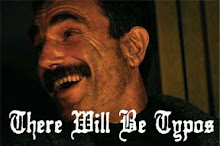
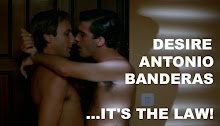
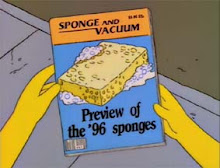
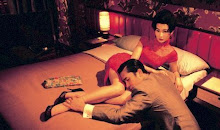
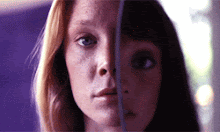


No comments:
Post a Comment